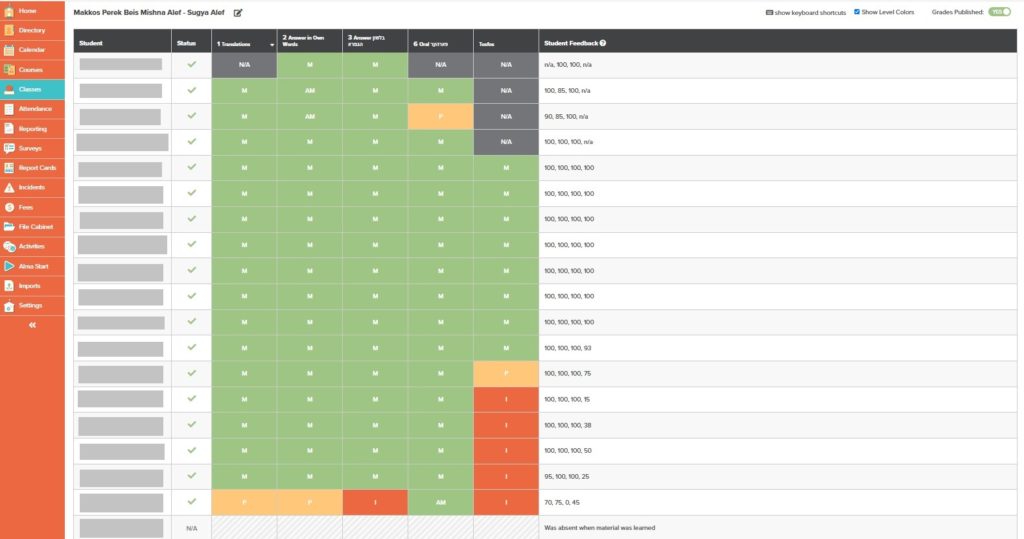PURPOSE
The number one objective of our yeshiva is to raise children to be frum Chassidim who live with Yiras Shomayim.
Sounds simple?
The truth is that a painfully large number of children graduate Yeshivas feeling conflicted about their role as Yidden in the world, unable to learn Torah independently, without basic communication and coping skills and with poor self-esteem overall.
At ULYOP, we believe in an honest evaluation of the world our children live in and the values they are exposed to. In this way, we are responsibly adapting to meet the challenges of our time and play a pivotal role in raising confident, committed Chassidim.
ROLE MODELS
For many hours a day, for many days a week, for many, many years, parents entrust their child’s academic growth and character development to professional Mechanchim. Recognizing this responsibility, our first educational commitment is for each member of our faculty to be a professional, a role model demonstrating joyful Yiddishkeit and enjoyable learning to our Talmidim.
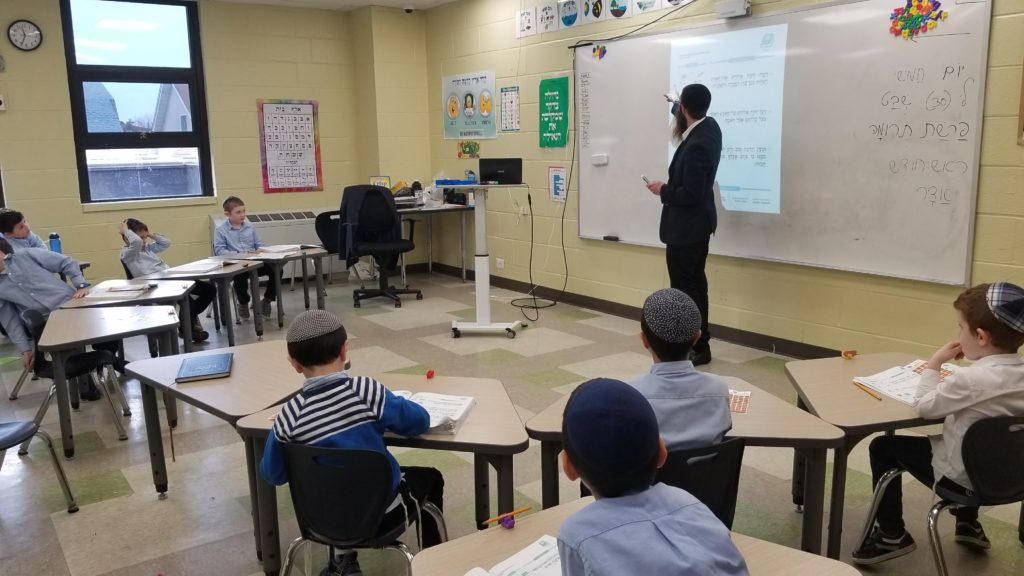
APPROACH
As a proud Lubavitch school, our approach derives from internalizing the founding principles of Tomchei Tmimim, thoroughly examining the results of contemporary Chabad education, and holding ourselves and every one of our faculty members responsible for reaching defined objectives.
OBJECTIVES
Language & Communication
- A student’s comfort in communication, directly impacts his confidence, self-worth and success in learning. Reading and translating fluently in Lashon Kodesh and Yiddish; reading, writing and speaking correctly in English; are basic tools that a child needs for ongoing life and learning.
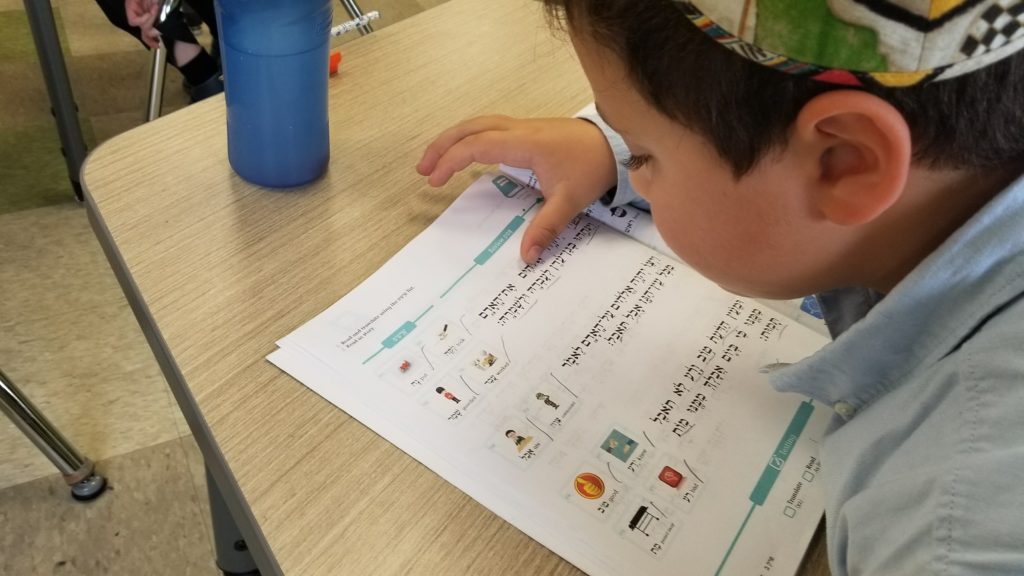
Values & Mentchlichkeit
- Woven throughout a YTTL OP education are the tools to instinctively behave in a compassionate, respectful and considerate way. At every turn, we identify areas that need to be demonstrated, practiced and tracked as part of our curriculum.
Torah for Life
- Our curriculum is a careful balance of high standards, vigorous support and realistic expectations. From Alef-Beis through Tosfos, we aim for every Talmid to master reading and translating Torah subjects, understand their messages and appreciate their living relevance.
Skills for Success
- We intend for every Talmid to have the skills to succeed as a motivated and dependable adult. Some of the areas we focus on are: social language, time management, task-completion, putting thoughts into words, Higher Order Thinking and political acumen/decision making.
METHODOLOGY
Mechanchim Who Are Subject Experts
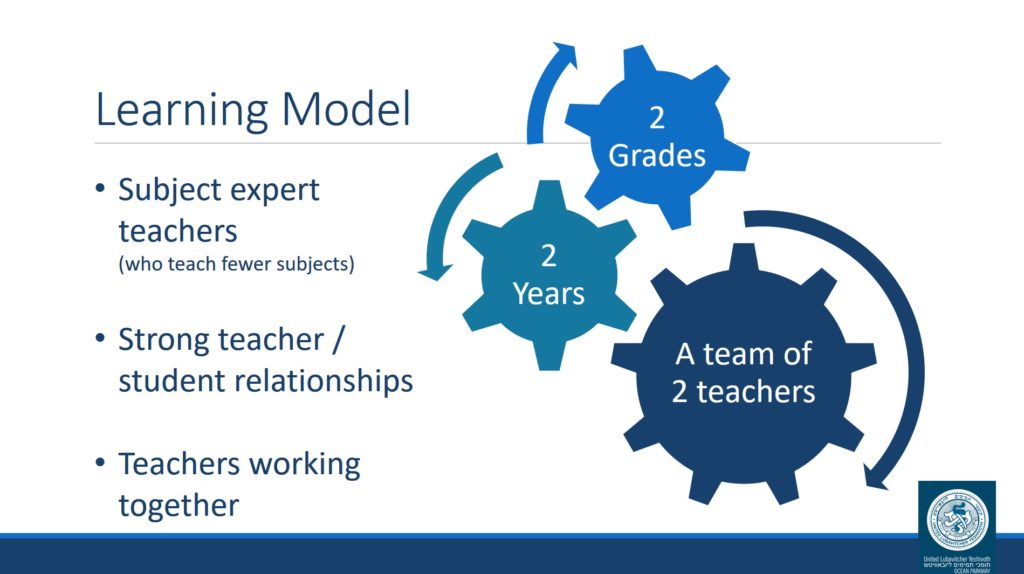
In our educational model, grades are grouped into divisions of two each. Each group has a team of teachers who specialize in one or two subjects and teach them to all Talmidim in their division.
With this format of focused expertise, Talmidim get a 100% experience from every teacher, in every subject. Additionally, each division’s teachers take collective responsibility for a Talmid’s progress over multiple years and work closely together to nurture students and ensure continuous pedagogy. Finally, teachers staying with students for two or more years leads to valuable mentorship relationships.
Examples of this model in action:
- Our rebbi works with students in Pre-1A, and 1st. He is a trained expert in understanding our talmidim, the systems and rules of chinuch, proven curricula and techniques, and the ability to identify reading disabilities.
- Our rebbi begins from Pre-1A to build a list of phrases that the students can master. The goal is to understand the relationship that the words have with each other in contrast to memorization of hundreds of words. A student who can build and decode phrases with accuracy will have the tools for meaningful independence in learning.
- Together, these teachers teach, perhaps giving extra attention to a 1st grader who is not yet expert, or early challenges to a Pre-1A student showing proficiency.
- With benchmarks set up each semester, they evaluate progress over a 2-year period before advancing students to the next division.
Mastery Based Data: Skill By Skill
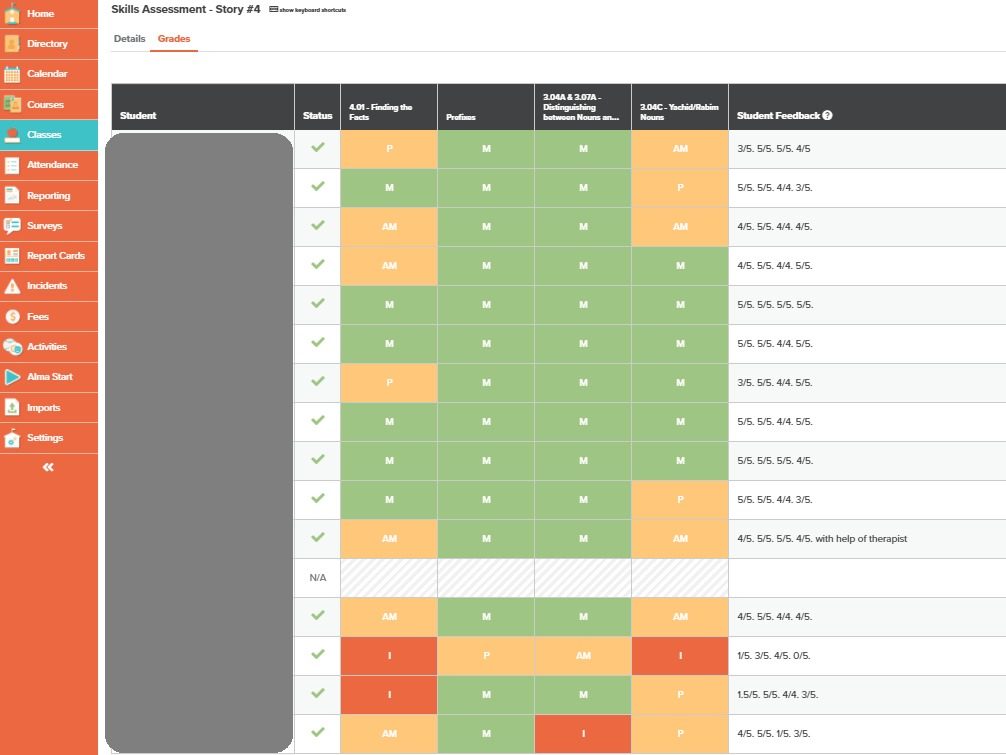
Welcome to the era of Intentional Chinuch.
The number one objective of our yeshiva is to raise children to be frum Chassidim who live with Yiras Shomayim.
Sounds simple?
The truth is that a painfully large number of children graduate Yeshivas feeling conflicted about their role as Yidden in the world, unable to learn Torah independently, without basic communication and coping skills and with poor self-esteem overall.
At ULYOP, we believe in an honest evaluation of the world our children live in and the values they are exposed to. In this way, we are responsibly adapting to meet the challenges of our time and play a pivotal role in raising confident, committed Chassidim.
APPROACH
As a proud Lubavitch school, our approach derives from internalizing the founding principles of Tomchei Tmimim, thoroughly examining the results of contemporary Chabad education, and holding ourselves and every one of our faculty members responsible for reaching defined objectives.
ROLE MODELS
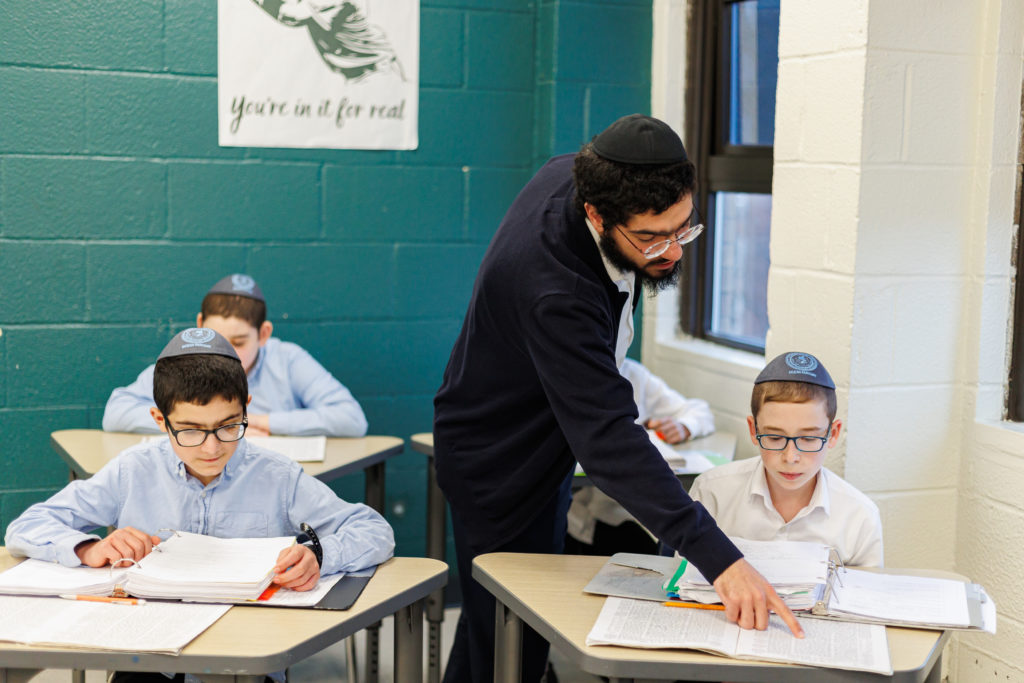
OBJECTIVES
Language & Communication
- A student’s comfort in communication, directly impacts his confidence, self-worth and success in learning. Reading and translating fluently in Lashon Kodesh and Yiddish; reading, writing and speaking correctly in English; are basic tools that a child needs for ongoing life and learning.
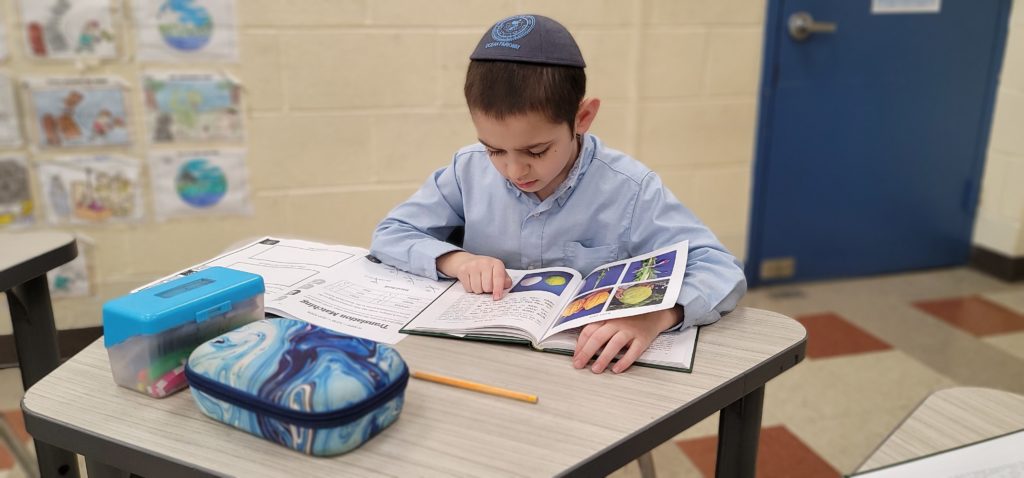
Values & Mentchlichkeit
- Woven throughout a YTTL OP education are the tools to instinctively behave in a compassionate, respectful and considerate way. At every turn, we identify areas that need to be demonstrated, practiced and tracked as part of our curriculum.
Torah for Life
- Our curriculum is a careful balance of high standards, vigorous support and realistic expectations. From Alef-Beis through Tosfos, we aim for every Talmid to master reading and translating Torah subjects, understand their messages and appreciate their living relevance.
Skills for Success
- We intend for every Talmid to have the skills to succeed as a motivated and dependable adult. Some of the areas we focus on are: social language, time management, task-completion, putting thoughts into words, Higher Order Thinking and political acumen/decision making.
METHODOLOGY
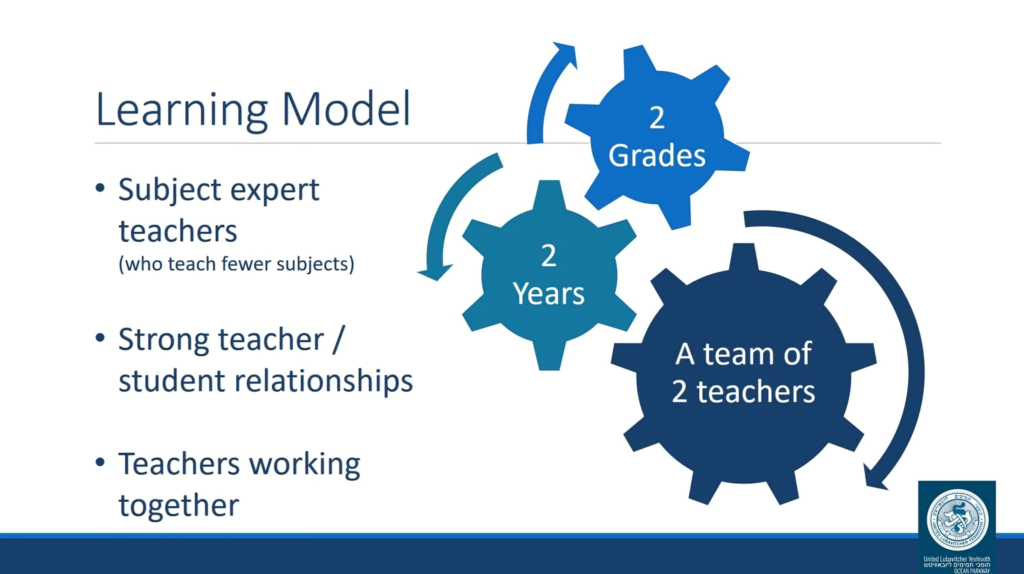
In our educational model, grades are grouped into divisions of two each. Each group has a team of teachers who specialize in one or two subjects and teach them to all Talmidim in their division.
With this format of focused expertise, Talmidim get a 100% experience from every teacher, in every subject. Additionally, each division’s teachers take collective responsibility for a Talmid’s progress over multiple years and work closely together to nurture students and ensure continuous pedagogy. Finally, teachers staying with students for two or more years leads to valuable mentorship relationships.
Examples of this model in action:
- Our rebbi works with students in Pre-1A, and 1st. He is a trained expert in understanding our talmidim, the systems and rules of chinuch, proven curricula and techniques, and the ability to identify reading disabilities.
- Our rebbi begins from Pre-1A to build a list of phrases that the students can master. The goal is to understand the relationship that the words have with each other in contrast to memorization of hundreds of words. A student who can build and decode phrases with accuracy will have the tools for meaningful independence in learning.
- Together, these teachers teach, perhaps giving extra attention to a 1st grader who is not yet expert, or early challenges to a Pre-1A student showing proficiency.
- With benchmarks set up each semester, they evaluate progress over a 2-year period before advancing students to the next division.
Mastery Based Data: Skill By Skill
